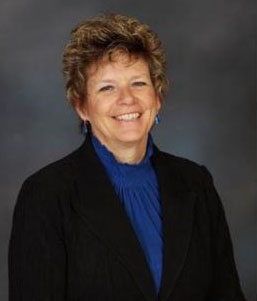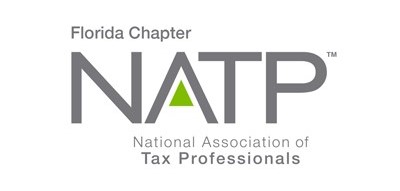Click here for registration form!
OUR CONFERENCE SPEAKER

MELINDA GARVIN, EA
Melinda is the Founder of Foos Garvin Accounting, a full service, small-town practice serving the needs for 2,000 clients. She has 30+ years of experience as a tax practitioner. Melinda is a member of NATP and since 2007 has been an instructor for NATP and has been a presenter at the IRS Nationwide Tax Forums, instructed various classes for local organizations and has served on the Ohio NATP Chapter as the Education Director. In 2012 to encourage tax professionals in office “best practices” she authored the manual “Audit Proof the Tax Office” and has recently published a second manual called “Best Practices for the Tax Office”. Melinda has a strong aspiration to support the tax professional’s many sides of interactions with clients, IRS and the always needed education.
SPRING 2019 CONFERENCE COURSE DESCRIPTIONS
Is Your Office IRS Audit Proof? (2 CPE/Federal Tax Law)
It is hard not to feel as though the tax profession is under attack with the new initiatives that the IRS has been taking with tax professionals. The IRS sends out letters at the end of each year to thousands of practitioners who do a lot of returns that contain Schedules C, Schedules E or refundable credits reminding them of tax practices, due diligence or a pending visit. In order to remain a creditable tax professional, we need to look at some of the guidelines that need to be followed and practices that need to be put into place within our offices. A successful office will implement operating procedures that establish and validate our tax knowledge and be compliant with Circular 230 while safeguarding the taxpayer. The audits of our offices are often resulting in $10K-plus penalties. So, we have choices to make— continue doing business as usual, which in my mind is like playing the lottery and hope that our office doesn’t get audited…..or make the necessary changes and show our clients they can trust us and count on us to always provide the latest security for their private and confidential information. All the tax knowledge in the world is not enough for a successful Circular 230 compliant tax office. It’s not enough to just know how to competently prepare tax returns. You must create a contemporaneous documentation system that will protect you from the IRS preparer penalties. Paid tax return preparers are held to a higher standard. It is very clear that these standards are changing and we need to keep up.
Upon completion of this session, you will be able to:
- Identify the areas in your tax office that do and don’t meet Circular 230 compliance
- Establish how to make the changes to your tax office to comply with Circular 230.
- Develop a contemporaneous documentation system that will protect you from the IRS preparer penalties
- Determine your willingness to modify how you do business.
BEST PRACTICES IN THE TAX OFFICE (2 CPE/Ethics)
Using Circular 230, Sec. 10.36, Pub 4557 and Pub 5293—let’s take a look and see if your office is compliant. Information Security Rules require your business to have safeguards in place to protect the taxpayer data. Are you at risk for Title 26—Internal Revenue Code (IRC) Sec 301.7216.1 and Sec 6713 penalties? The Gramm-Leach-Bliley Act has rules that you are subject to. There are a growing number of laws, regulations, standards, and best practices that cover the privacy and security of taxpayer data. This session will cover administration, facilities, personnel, computer systems, media and the various incidents in all facets of safeguarding the taxpayer data and ensuring your compliance with the IRS.
Upon completion of this session, you will be able to:
- Determine compliance with the standards of practice per Circular 230
- Learn how to implement best practices in the tax pro office
- Establish weak areas in office procedures
- Develop a written security plan
- Build a defense system to prevent potential unethical practices
- Discuss the ‘tools’ needed to face the challenges in our real-life office
- Improve management of communications, employees and taxpayer data
- Take pre-emptive steps to ensure compliance of Circular 230
LEARNING LOSSES & LIMITS (4 CPE/Federal Tax Law/Intermediate)
Exactly what losses are we talking about here? Let’s see: it could be Passive—NOL—QBI or—EBL. Determining whether a loss from a rental, partnership or S corporation can be deducted on a taxpayer’s income tax return can be very confusing. This topic sorts out the rules for deducting those losses and discusses how the limitations are calculated. We will talk about the dreaded PTP’s. We’ll also look at the new Qualified Business Losses and Excess Business Losses created by the TCJA. Net Operating Losses are also new under the TCJA yet we still have to remember and maintain the ’old way’. So, we’ll look at NOL’s also! Plenty of loss types to cover and understand their interaction.
Upon completion of this session, you will be able to:
- Identify which losses are associated with the various entities and/or individuals
- Calculate the losses pre/post TCJA
- Associate which forms report each loss
- Determine what the rules, guidelines and laws are for
ALL OR NOTHING-STRICT SUBSTANTIATION RULES (2 CPE/Fed.Tax Law)
Strict substantiation rules are currently being implemented during audits of taxpayers’ records. Many taxpayers and even some tax professionals believe the Cohan Rule can always be applied. This session will look at Sec 274(d), Sec 280(A)(c)(1) and Sec 170(f)(17) which cover travel, meals, business gifts, office and home, and charitable. This class will help you understand what documentation is required in order to take these deductions on a tax return.
Upon completion of this session, you will be able to:
- Have an understanding of the Cohan Rule
- Identify what wording is needed on certain charitable statements
- Know what ‘third party verification’ is
- Apply the concept of metropolitan area for the taxpayer
FEDERAL TAX LAW CHANGES (2 CPE/Federal Tax Update)
We will have just completed a tax season with the most sweeping tax overhauls in decades and we survived! This discussion will focus on those tax issues and the updates for 2019. Get the latest clarification and details on Individual and Business Tax Updates.
Upon completion of this session, you will be able to:
- Identify any tax law provisions that were extended
- Analyze recently enacted tax legislation and apply the new tax laws
- Develop tax-saving strategies for the taxpayer
- Expanded due diligence regarding head of household
- Identify winners and losers under the TCJA
SELLING? OR BUYING? A TAX PRACTICE (2 CPE/Federal Tax Law)
Selling a tax practice? This session is for you! Want to buy a tax practice? This session is for you, too! How can that be? A successful sale will happen after a well-planned exit strategy is created and then implemented. The exit strategy should comprise of many factors that a buyer will be looking for in a profitable and lucrative tax business. So, if you want to sell or buy—this session is for you. We’ll take a look at the tax consequences of the assets, goodwill and terms from both sides of the table. Does Sec 7216 come in to play during a sale? What about Goodwill? What exactly is it and how do you handle it on your personal tax return? How much is your practice worth? How much will a tax practice cost to buy? You will get lists of what will establish the value of the tax practice. Whether you plan to buy or sell now or in 5 years this session will give you the tools necessary to ensure a successful transaction.
Upon completion of this session, you will be able to:
- Develop a timeline for a successful exit/growth strategy
- Identify the pros/cons of the tax practice sale
- Understand the formula of valuing a tax practice
- Compute the value of a tax practice
- Determine the tax implications of selling/buying a tax practice on the installment basis
- Report the selling/buying of goodwill on the tax return
- Explain Sec 7216 impact on disclosure of taxpayer data
DODGE DOUBLE TROUBLE: THE 1120S K-1 & BASIS (2 CPE/Fed Tax Law)
K-1s from an S-Corp simply get entered into our computers matching up
with the line items and then our software does the work, right? Hiding behind the scenes, however, is the Basis Worksheet. At least there better be one! The S-Corp K-1 must have its supporting player for this double billing performance. The tax professional should not put entries from the shareholder’s K-1 on their personal return without it.
The IRS is making sure of it now with the rules for Schedule E, page 2 requiring the Basis Worksheet be attached to the tax return when four specific circumstances occur regarding the Shareholder’s Basis. Attend this session to learn when basis statements are required, how to compute basis/reconstruct basis and what to do when losses have been claimed when there wasn’t enough basis.
Upon completion of this session, you will be able to:
- Identify the different entries on the 1120S K-1
- Understand what basis is and why it is necessary
- Determine whether a potential loss on the K-1 can flow to the individual return
- Explain how to reconstruct basis with tips for use in the ’real world’ office
- Use a Basis Worksheet and the flow of it from current year to the next
- The tax effects on the shareholder when distributions are received from an S Corporation
- Calculating the shareholder’s basis in the S Corporation
2019 SPRING CONFERENCE AGENDA
THURSDAY, May 30
7:15-7:45 AM Registration, Continental Breakfast
7:45-8:00 AM Annual meeting
8:00-9:40 AM Is Your Office IRS Audit Proof? 2 CPE
9:40-10:00 AM Mid-morning Break (Refreshments provided)
10:00-11:40 AM Best Practices in the Tax Office (Ethics) 2 CPE
11:40-1:00 PM Lunch (provided)
1:00-2:40 PM Learning Losses & Limits 4 CPE
2:40-3:00 PM Afternoon Break (Refreshments provided)
3:00-4:40 PM Learning Losses & Limits, continued
FRIDAY, May 31
7:15-8:00 AM Registration, Continental Breakfast
8:00-9:40 AM All or Nothing—Strict Substantiation 2 CPE
9:40-10:00 AM Mid-morning Break (Refreshments provided)
10:00-11:40 AM Federal Tax Law Update—real life and the law 2 CPE
11:40-12:00 PM Intro of Board candidates/balloting
12:00-12:30 PM Scholarship Fund Raffle
12:30-1:30 PM Lunch (provided)
1:30-3:10 PM Selling or Buying A Tax Practice 2 CPE
3:10-3:20 PM Afternoon Break –Announcement of new Board members
3:20-5:00 PM Dodge Double Trouble: 1120S K-1 and Basis 2 CPE


